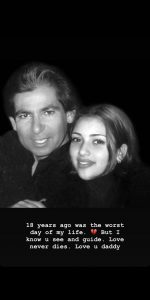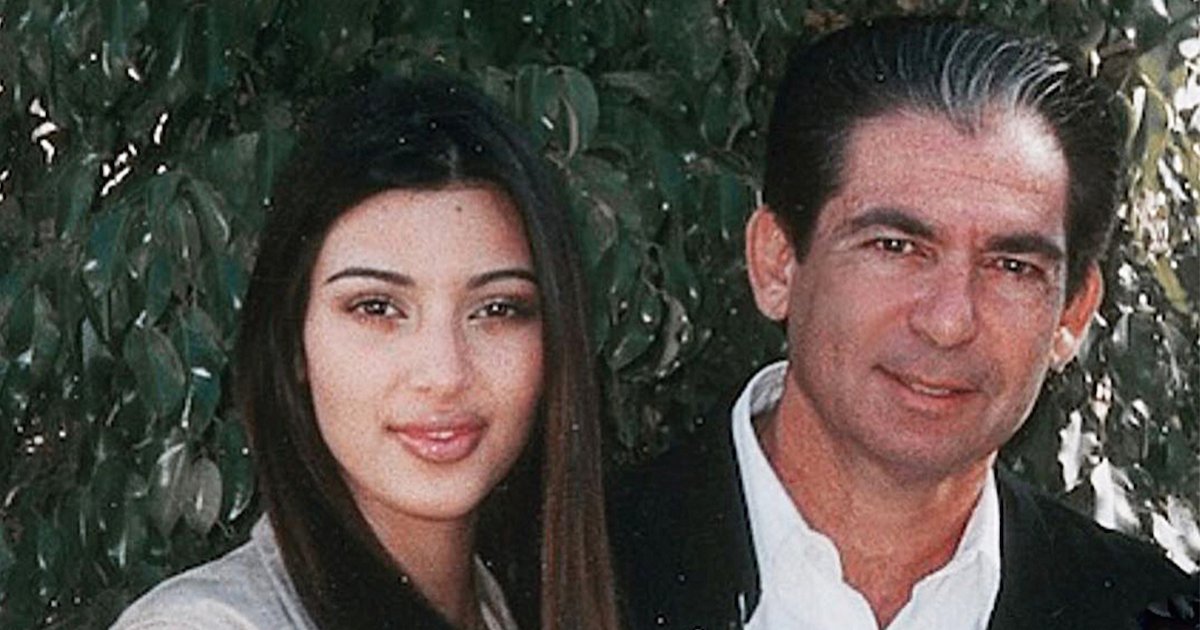Kim Kardashian Remembers Her Father
- Kim Kardashian remembered her late father, Robert Kardashian, in a series of photos to commemorate his passing from esophageal cancer 18 years ago.
- Esophageal cancer can be treated if caught early. The common symptoms like difficulty swallowing, weight loss and heartburn can often mimic other diseases, so it’s important to bring any changes to your body up with your doctor.
- Losing a loved one, to cancer or otherwise, can cause immeasurable pain. But therapy can be a good option for some people to help process what they’ve been through and move forward.
Robert Kardashian was best known as a businessman and lawyer who played a major role in the O. J. Simpson case both as a friend of Simpson and a member of his legal team. He died in 2003 just two months after receiving his cancer diagnosis. Unfortunately, this is not a rare occurrence for people with esophageal cancer as symptoms tend to be dismissed or unnoticeable until the cancer is advanced and has spread.
Read More
“18 years ago was the worst day of my life,” she wrote on her story. “But I know u see and guide. Love never dies. Love u daddy”

Despite the pain associated with the disease for the Kardashian family, they’ve still tried to bring awareness to the lesser-known cancer by helping to open a health center at the University of California in Los Angeles called the Robert G. Kardashian Center for Esophageal Health.
Understanding Esophageal Cancer
The esophagus is a tube that goes from the throat to the stomach and plays an important role in your digestive system. When cancerous cells form inside the tissues of this organ, you have esophageal cancer. Overall, this cancer is rare, often difficult to diagnose and more common in American men. Of more than 19,000 cases of esophageal cancer expected to be diagnosed in the United States in 2021, about 4,000 will be diagnosed in women. Risk factors for esophageal cancer include smoking, alcohol consumption, acid reflux disease and obesity.
Some people confuse esophageal cancer with throat cancer, but they are, in fact, different. The cause of most esophageal cancers is unknown though some risk factors like tobacco use can increase the likelihood of developing this cancer but human papillomavirus, a sexually transmitted virus also known as HPV, is a known cause of throat cancer. Treatment options for esophageal cancer include surgery, radiation, chemotherapy and immunotherapy.
In a previous conversation about treating esophageal cancer, Dr. Raja Flores, chair of thoracic surgery at Mt. Sinai School of Medicine, told SurvivorNet the disease is often diagnosed in the later stages meaning it has already spread to distant parts of the body.
"Of [all the cases diagnosed in the U.S. per year], only about 1,000 get surgery, because the majority of them are identified at such a late stage," he said.
Dr. Brendon Stiles, chief of thoracic surgery at Montefiore Medical Center, previously shared his expertise on this disease with SurvivorNet.
"We know that esophageal cancer is a tough one, it's one of the cancers with one of the lowest cure rates out there," he said. "But like many cancers, if we find it early, we can often treat it effectively. Either with surgery, or surgery and chemotherapy surgery, chemotherapy and radiation sometimes. My message to patients is the same as it is for most cancers, try to get diagnosed early."
But why is it often diagnosed so late? One reason could be that its symptoms often mimic that of other diseases including weight loss, difficulty swallowing and heartburn, according to Dr. Stiles. Things like heartburn are generally not cause for any serious concern, but it’s important to communicate any issues with your doctor. The more proactive you are about your health, the more likely you are to have an early diagnosis if something serious were to arise.
Losing a Loved One to Cancer
Losing someone you care about for any reason, including cancer, can cause immeasurable pain. Allowing yourself the time and space to mourn is essential, and one place to start can be seeking out independent support resources such as therapy.
In an earlier interview with SurvivorNet, Camila Legaspi shared her own advice on grief after her mother died of breast cancer. For her, therapy made all the difference.
"Therapy Saved My Life": After Losing A Loved One, Don't Be Afraid To Ask For Help
"Therapy saved my life," Legaspi said. "I was dealing with some really intense anxiety and depression at that point. It just changed my life, because I was so drained by all the negativity that was going on. Going to a therapist helped me realize that there was still so much out there for me, that I still had my family, that I still had my siblings."
"When you lose someone, it's really, really, really hard," Legaspi said. "I'm so happy that I talked to my therapist. Keep your chin up, and it's going to be OK. No matter what happens, it's going to be OK."
Remembering all the wonderful ways the person you've lost enriched your life can also help you move forward, as Kim Kardashian can surely attest to. In a previous interview with SurvivorNet, Caleb Farley talked about his mother's battle with breast cancer and how much she impacted his life. He also discussed how he opted out of his position as a cornerback for the Virginia Tech Hokies due to COVID-19 concerns. Having lost his mom to breast cancer in 2018, he knew he wanted to be extra careful during the pandemic.
Farley announced the news of his opt-out in an Instagram video saying, in part, "I cannot afford to lose another parent or loved one… Though the competitor in me badly wants to play this season, I cannot ignore what's going on in my heart, and I must make the decision that brings me the most peace."
Farley trained for the NFL draft instead of playing for Virginia Tech, and his efforts paid off. He was selected by the Tennessee Titans as the number 22 overall pick in the first round of the 2021 NFL draft.
Farley's mother fought two battles with cancer. He watched as she went through multiple rounds of chemotherapy while still working and taking care of her family. Although his "superhero" mother will not get to see him play in the NFL, Farley will take many lessons he learned from her and apply them to whatever challenges he faces in life moving forward.
"My mother raised me to be very religious, very God-conscious. That's been everything to me, and my life. That's like the building blocks of my, of my life," Farley told SurvivorNet. "Anything that's happened to me, any adversity, any good times, any bad times, I've always kind of stood on that rock of faith. I can't thank her enough for how she raised me and because it was her who gave me all of that, um, spiritually, she, she just filled my heart with love and joy. I've had a happy life because of her."
Learn more about SurvivorNet's rigorous medical review process.


